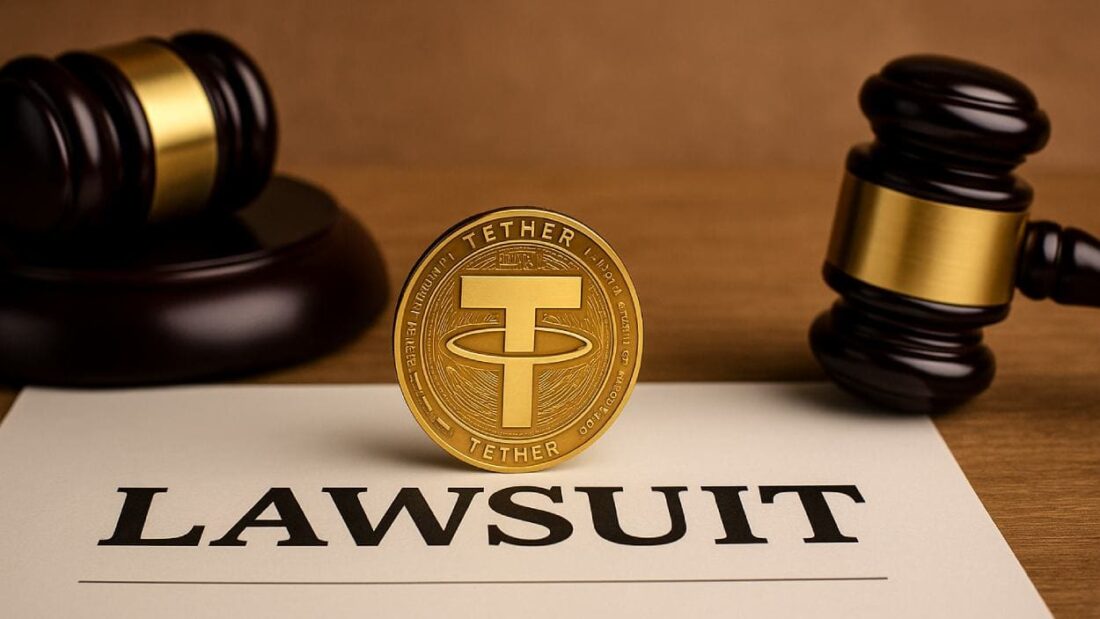Tether is being sued by Riverstone Consulting for allegedly freezing $44.7 million in USDT without following proper international legal protocols.
Key Takeaways
- Tether froze $44.7 million in USDT from Riverstone-linked wallets at the request of Bulgarian police, sparking a legal dispute.
- Riverstone claims the freeze violated international treaty protocols, resulting in missed investment opportunities and financial damages.
- Tether has frozen over $3.2 billion in USDT globally, often cooperating with authorities to block funds linked to illicit activity.
- The case raises concerns over centralized control in stablecoins and the balance between speed and due process in freezing crypto assets.
What Happened?
Tether, the issuer of the world’s largest stablecoin, is facing a lawsuit from Texas-based Riverstone Consulting after it froze $44.7 million in USDT allegedly without following proper legal procedures. The freeze was made at the request of Bulgarian police in April 2025 and affected eight offline wallets controlled by Riverstone. The lawsuit, filed in the Southern District of New York, seeks damages and the return of the frozen assets.
🚨MistTrack Alert:
— MistTrack🕵️ (@MistTrack_io) October 17, 2025
🧊On Oct 16, @Tether_to froze 22 addresses across #Ethereum and #TRON, totaling 13,408,649 $USDT. Among them:
🔹0xecbd85e318e83f0358b404b41fb73daaacbeb59e
👉10,301,346 $USDT frozen
🔹TYzDebkjMofvfWR6v7Ay1rcH7r9JjYMxQV
👉1,403,971 $USDT frozen… pic.twitter.com/ZTAohEr43t
Tether’s Freeze Sparks Legal Controversy
Riverstone claims that Tether acted “improperly and unreasonably” by freezing the wallets based solely on a request from a local Bulgarian police department. The firm argues that under the Bulgarian International Judicial Assistance Treaty, such a request should have gone through official diplomatic and legal channels involving central authorities.
When Riverstone attempted to contact Tether, they were directed to Bulgarian police, who reportedly did not respond to inquiries. The affected wallets were held on behalf of an unnamed client, and Riverstone says the lack of communication and proper protocol has caused them to miss major investment opportunities.
The lawsuit accuses Tether of:
- Breach of fiduciary duty.
- Unjust enrichment, as Tether allegedly continues to earn interest on the assets backing the frozen USDT.
- Conversion, or the unlawful control of another party’s property.
Crypto Forensics Suggest Tainted Funds
Despite Riverstone’s legal argument, blockchain analysts point to suspicious activity linked to the frozen wallets. Notably, crypto investigator ZachXBT claimed the addresses were just a few transactions removed from known scams like BETL, Pegasus Ride, and LSSC. The wallets reportedly chain-hopped frequently across blockchains like Tron, Polygon, and Ethereum, which is often seen in attempts to launder funds.
Pattern of Tether Freezes Raises Broader Questions
This lawsuit comes just as Tether continues to ramp up its freezing activities. In September alone, Tether froze $13.4 million in USDT across 22 Ethereum and Tron addresses. The largest chunk of that was held in one address with $10.3 million, followed by another with $1.4 million.
Tether has claimed in official statements that it partners with over 290 law enforcement agencies across 59 countries. To date, the company has frozen more than $3.2 billion in USDT and blocked over 3,660 wallets. These actions are typically aimed at stopping criminal activities such as terrorism financing, fraud, and violations of international sanctions.
Some of the company’s largest freeze actions include:
- March 2025: $28 million frozen on Russian exchange Garantex.
- April 2025: $28.67 million frozen across 13 addresses.
- June 2025: $12.3 million frozen on the Tron network.
However, these actions raise a fundamental question for centralized stablecoins like Tether: How fast is too fast when freezing funds?
CoinLaw’s Takeaway
In my experience watching the stablecoin space, this lawsuit is a big deal. It shines a light on something that’s been quietly building. The immense power centralized issuers like Tether hold over users’ assets. While it’s true that bad actors use crypto for shady operations but freezing nearly $45 million based on a local police request without going through proper legal channels? That sets a dangerous precedent. If they acted too quickly here, other legitimate users might start wondering whether their funds are ever truly safe. This is a reminder that while stablecoins offer speed and utility, they’re not above the legal process. And honestly, they shouldn’t be.


































































